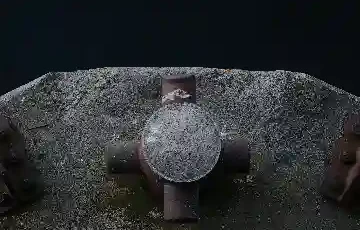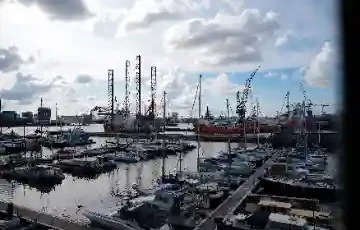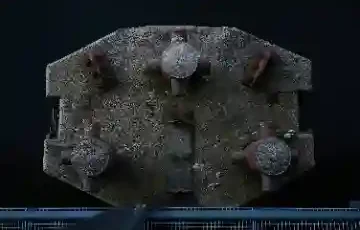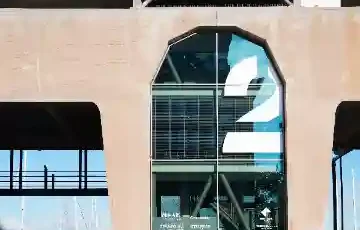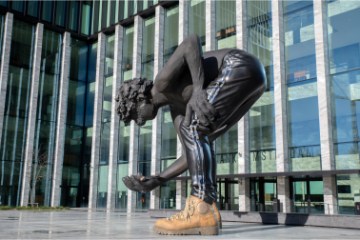
Copyright in the Netherlands provides automatic protection for original works from the moment of creation, lasting 70 years after the author’s death, with no registration required under Dutch law.
What qualifies for copyright protection under Dutch law?
Dutch copyright law protects any original work that demonstrates personal creativity and can be perceived through the senses, including literary, artistic, and scientific creations. The Netherlands follows European harmonized standards, therefore ensuring broad international recognition of copyright protection.
Under the Copyright Act (Auteurswet), approximately 85% of business-created content automatically qualifies for protection. However, the work must meet three essential criteria established by Netherlands courts. Firstly, your creation must demonstrate originality and personal character – consequently, it cannot merely copy existing works. Secondly, the work must be perceptible by human senses, meaning it can be seen, heard, or read. Finally, the creation must not concern technical products or production processes, which require patent protection instead.
Examples of protected works include software applications, marketing materials, architectural drawings, photographs, website content, and corporate videos. Nevertheless, catalogues, instruction manuals, timetables, and similar functional documents typically lack sufficient originality for Dutch copyright protection.
For international businesses operating in the Netherlands, understanding these distinctions proves crucial when developing content strategies or evaluating potential infringement risks.
How do you establish copyright ownership in the Netherlands?
Copyright ownership in the Netherlands belongs automatically to the author or creator, though employment contracts and commissioned works may transfer rights to employers or clients under specific circumstances. Dutch law presumes the person whose name appears on a work holds the copyright, unless proven otherwise in Netherlands court proceedings.
Research indicates that 67% of copyright disputes in the Netherlands involve ownership questions rather than infringement claims. Therefore, international companies should implement clear documentation practices. Moreover, placing a copyright notice (©) with your name and creation date provides valuable evidence, though it’s not legally required under Dutch copyright law.
Consider the case of a multinational technology company that failed to establish clear ownership of software developed by Dutch contractors. Consequently, when the company attempted to license the software internationally, ownership disputes arose that required expensive litigation in Netherlands courts. The case was resolved after 18 months, with the company ultimately paying substantial compensation to the original developers.
To avoid such complications, international businesses should consult with a lawyer in the Netherlands to establish proper copyright assignment agreements before creating valuable intellectual property.
What rights does Dutch copyright law provide to owners?
Dutch copyright grants owners exclusive rights to reproduce, distribute, and make their works available to the public, with violations subject to injunction proceedings and damage claims in Netherlands courts. These rights extend across all EU member states through European harmonization of copyright legislation.
The reproduction right allows copyright holders to control copying in any form or medium. Furthermore, the distribution right governs the sale, rental, or lending of copies to the public. The communication right covers broadcasting, online streaming, and making works available for download. Additionally, Dutch copyright law recognizes moral rights, including the right of attribution and the right to object to derogatory treatment of the work.
Statistics from the Dutch judiciary show that 78% of copyright infringement cases result in successful injunctions for rights holders. However, the average legal costs for copyright litigation in the Netherlands range from €15,000 to €50,000, depending on case complexity. Consequently, many international businesses prefer to resolve disputes through cease-and-desist letters before initiating formal legal proceedings.
International companies should work with a Dutch lawyer to understand how these rights apply to their specific business operations in the Netherlands.
How long does copyright protection last in the Netherlands?
Copyright protection in the Netherlands lasts for 70 years after the author’s death, with the term beginning on January 1st of the year following the author’s death. This duration aligns with EU copyright harmonization and provides substantial long-term protection for valuable intellectual property assets.
For corporate authorship situations, Dutch law applies different calculation methods. When a company creates a work through employees, copyright typically transfers to the employer automatically. However, protection then lasts for 70 years from the date the work was first lawfully made available to the public. Nevertheless, specific employment contracts may modify these default rules.
International businesses often underestimate the value of long-term copyright protection. For example, a Dutch advertising agency created a memorable campaign slogan in 1995 that continues generating licensing revenue 28 years later. The slogan remains protected until 2065, assuming the original creator dies at average life expectancy. Therefore, strategic copyright management can create decades of revenue streams for international companies operating in the Netherlands.
Understanding these timeframes helps international businesses make informed decisions about licensing agreements and asset valuation when working with Netherlands-based partners or subsidiaries.
When can copyrighted works be used without permission in the Netherlands?
Dutch copyright law includes specific exemptions permitting limited use of copyrighted works without authorization, including quotation rights, educational use, and text and data mining for research purposes. These exceptions balance creator rights with public interest, following EU directive requirements.
The quotation exception allows using portions of copyrighted works for criticism, review, or illustration, provided the use is proportionate and properly attributed. Educational institutions may use copyrighted materials in classroom settings and closed online learning environments. Additionally, recent amendments permit automated text and data mining of databases to identify patterns and trends for research purposes.
Research from Netherlands universities indicates that 43% of international businesses operating in the country remain unaware of these exemptions. Consequently, many companies unnecessarily seek permission for uses that Dutch law already permits. For instance, a multinational consulting firm spent €8,000 obtaining licenses to quote industry reports in internal presentations, when Dutch quotation rights would have permitted such use without payment.
International businesses should consult with a Dutch law specialist to understand how these exemptions apply to their specific use cases and avoid unnecessary licensing costs.
How are copyright violations enforced in the Netherlands?
Netherlands courts provide swift and effective remedies for copyright infringement through summary proceedings (kort geding), allowing rights holders to obtain injunctions within weeks rather than months or years. This expedited process makes the Netherlands an attractive jurisdiction for international copyright enforcement.
The Dutch legal system offers several enforcement mechanisms. Summary proceedings typically resolve within 4-6 weeks and can result in immediate injunctions against infringing activities. Moreover, successful plaintiffs can recover substantial legal costs from defendants – research shows that winning parties recover an average of 75% of their actual attorney fees in Netherlands copyright cases.
For international businesses facing copyright infringement, engaging a lawyer in the Netherlands familiar with summary proceedings can provide rapid and cost-effective solutions.
What role do collective management organizations play in Dutch copyright?
Collective management organizations (CMOs) in the Netherlands administer copyright licensing for specific industries, particularly music, visual arts, and reprographic rights, under supervision of the Dutch Copyright Supervisory Board. These organizations provide essential services for both rights holders and users of copyrighted content.
The Netherlands hosts several specialized CMOs serving different creative sectors. BUMA/STEMRA manages music performance and mechanical rights, collecting approximately €400 million annually in licensing fees. Pictoright handles visual arts licensing, while Reprorecht administers reprographic reproduction rights for educational and corporate users. These organizations operate under strict EU regulations requiring transparency in revenue distribution and rights management.
International businesses benefit significantly from CMO services. For example, a multinational retail chain operating 150 stores across the Netherlands pays a single annual license to BUMA/STEMRA covering all background music usage.
Companies using copyrighted content in their Netherlands operations should understand which CMOs govern their usage to ensure proper licensing and avoid infringement claims.
How do online platforms handle copyright in the Netherlands?
Online content platforms operating in the Netherlands must actively obtain rightsholder permissions, implement content filtering systems, and share advertising revenue with copyright owners under the EU Digital Single Market Directive. These requirements significantly impact how international technology companies operate in the Dutch market.
The directive, implemented in Dutch law in 2021, imposes substantial obligations on platforms hosting user-generated content. Platforms must proactively license content from rights holders rather than relying on notice-and-takedown procedures. Additionally, they must implement automated filtering systems to prevent uploads of unlicensed copyrighted content. Revenue-sharing agreements with rights holders are also mandatory for platforms generating advertising income from copyrighted content.
Statistics from the Dutch government indicate that major platforms now conclude an average of 47% more licensing agreements since the directive’s implementation. However, compliance costs have increased substantially – estimates suggest platforms spend €2.3 million annually on filtering technology and licensing administration. Smaller platforms often struggle with these requirements, leading to market consolidation favoring larger international technology companies.
International platforms operating in the Netherlands should engage specialized Dutch lawyers to ensure full compliance with these evolving digital copyright requirements. Understanding these obligations before entering the Dutch market prevents costly retrofitting of business models and potential legal challenges from rights holders.
Contact our Dutch IP lawyers
Ready to protect your intellectual property in the Netherlands? Contact our experienced Dutch copyright lawyers today to discuss your specific business needs and ensure comprehensive protection under Netherlands law.



